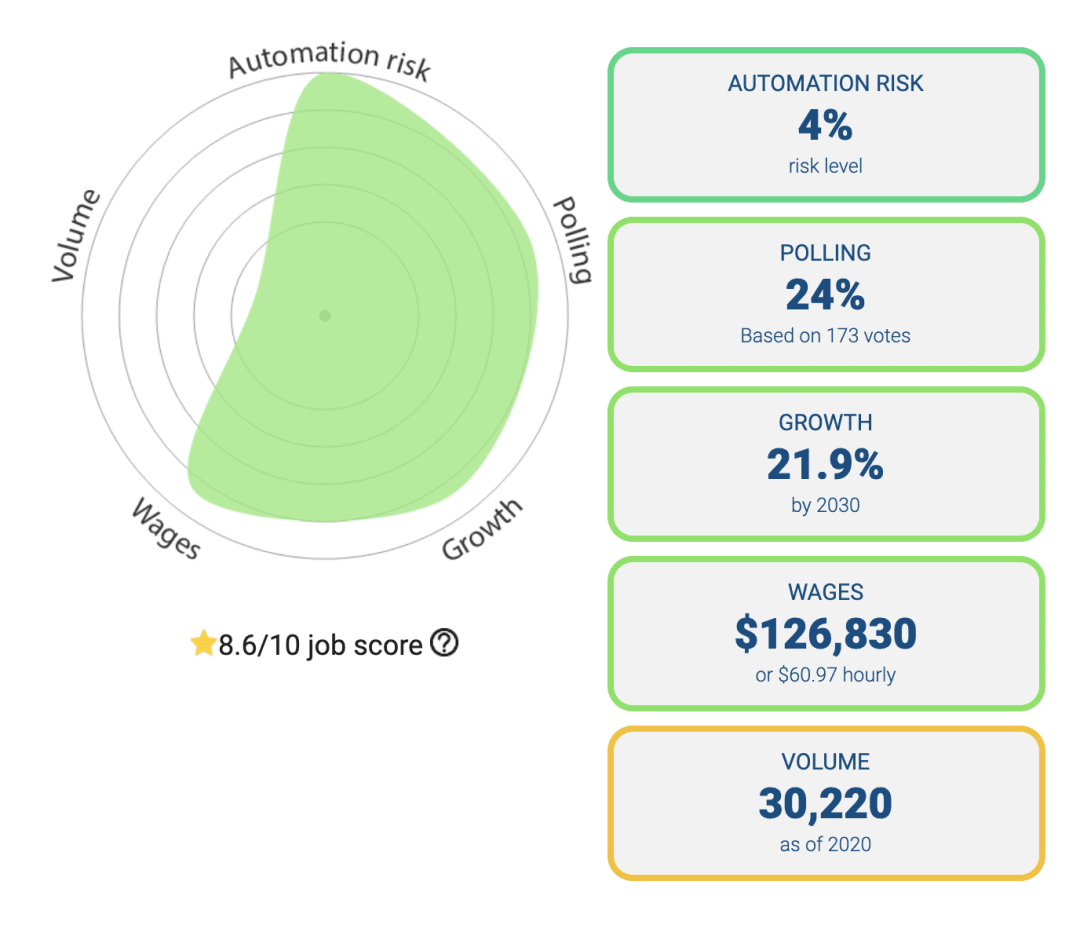How to Become a Forensic Computer Analyst in 5 Steps was originally published on Springboard.
As the world becomes increasingly reliant on technology, new employment opportunities for IT specialists continue to open in almost every field. Local police departments are no exception. Where once interviews and scientific testing were enough to gather the evidence needed in a criminal investigation, now the work of forensic computer analysts is often needed to unravel the technical evidence.
Computer forensic analysts may also be involved in resolving and prosecuting cybersecurity cases. Bad actors in the cyber world can include skilled hackers wishing to harm individuals, businesses willing to do whatever it takes to stay ahead of the competition, and even other countries. Skilled computer analysts are needed to catch all of them.
The field of computer forensic analysis is a relatively new one, but it appears to be here to stay. Computer forensic analysts can assist the police, the FBI, other law enforcement agencies, or law firms. And according to the Bureau of Labor Statistics (BLS), this field is likely to see a 17% increase in demand by 2026.
Below, you will find tips on how to become a computer forensic analyst as well as information about exactly what they do and how well they are paid to do it.
What Is a Forensic Computer Analyst & What Do They Do?
A forensic computer analyst, or digital forensic analyst as they are sometimes called, helps law enforcement agencies investigate crimes that have a digital aspect. While they frequently spend their time ferreting out hackers and investigating cyberattacks and other cybercrimes, they may also be involved in investigations into theft, murder, kidnapping, stalking, terrorism, and other crimes. If there is a digital component to the crime—and these days there is a digital component to almost everything—then a forensic computer analyst can help to solve it.
The primary duties of a digital forensic analyst start with finding digital artifacts that may link the possible perpetrators of a crime to that crime. These artifacts may be found on mobile devices like smartphones and tablets, computer networks, storage devices, or in digital correspondence like emails.
Once those artifacts have been found, it is the responsibility of the computer forensic analysts to present evidence that these artifacts prove the necessary link between the perpetrator and the crime. They may then be asked to present this evidence in court in terms that non-computer experts can understand.
The case against Pedro Bravo for the murder of his roommate, Christian Aguilar, is a great example of how the work of skilled digital forensic analysts can make or break a case.
When Aguilar’s body was discovered in 2012, the police had plenty of circumstantial evidence tying Bravo to the crime, but they needed more. A digital search of Bravo’s smartphone showed that he had recently been looking up information about hiding a body.
In addition, pings on the cell phone towers from Bravo’s phone showed that he had been in the area where the body was discovered after Aguilar’s disappearance. Finally, the digital analysis showed that Bravo had accessed his phone’s flashlight feature several times the night of the murder.
When combined with the physical evidence the police already had, this digital evidence was enough to convince a jury to convict Bravo.
Not all days in the life of a computer analyst are likely to be this successful. Like many investigative jobs, this career involves a lot of tedious work and failed attempts.
As a digital forensic analyst, you need to be prepared to quickly change tactics and priorities as new evidence becomes available. One minute you may be tracking down the physical location of a smartphone and the next be tracing an email chain from a completely different suspect.
Through it all, the one constant is the need to be a team player. You must be able to take direction from other investigators and effectively communicate your findings to them.
How to Become a Computer Forensic Analyst in 5 Steps
If you are still reading this, then you probably believe that you have what it takes to be a computer forensic analyst. Here are the steps you will need to take to be considered for this position and the skills you will need to acquire to do it well.
1. Pursue Higher Education
Very few schools offer a computer forensics degree or one geared towards becoming a digital forensic examiner, so a bachelor’s degree in the related fields of computer science or information technology will suffice. If you have earned a degree in criminal justice or other related fields and have the computer experience to do the job, you may also be considered.
2. Get Certified
Not all law enforcement agencies require that their computer forensic analysts obtain certification, but it is likely that, as time passes, more of them will. Even if the agency you wish to apply to does not require certification, having one will improve your resume and may up your chances of getting hired.
A Certified Forensic Computer Examiner (CFCE) certification is offered by only two institutions, the Association of Computer Investigative Specialists (IACIS) and the International Society of Forensic Computer Examiners (ISFCE). The IACIS only requires that an analyst pass their exam to be awarded the certificate. The ISFCE requires computer analysts to get approved training, have a set level of professional experience, and pass their exam to earn the certificate.
Regardless of which entity awards you the certificate, it must be renewed every three years.
3. Seek Experience
Your education may be enough to get you an interview but to succeed at the job, you will need to have the type of experience that schools rarely teach.
You must be fluent in multiple computer languages, be able to use all the major networks and operating systems, and understand the inner workings of the hardware and software that make them run. In addition, your job prospects will improve greatly if you are a capable hacker, or can at least prove that you understand the techniques used by hackers.
Any experience working with the development or testing of digital security systems is also a plus.
4. Acquire the Necessary Hard Skills
- You should be continuously updating your technical knowledge.
- You will need to understand not only the letter of the law but also how it is practiced by the other forensic professionals and prosecutors you will be working with.
- You must also understand concepts like the chain of custody and the nuances of investigative methods and ensure that the proper procedures are always followed.
5. Consider Your Personality
Not all of the skills successful computer forensic specialists need can be learned. Some of the skills you will need are personality traits or are based on your own moral compass. These include:
- Strong ethics and values—The temptation to fudge your research or lose pertinent information can be strong, so your own personal code of conduct must be stronger.
- Interested and quick learner—Anyone employed in IT must be willing to continuously stay up-to-date on the technology and the techniques that may be used to hack it.
- Detail orientated—You must be able to pay attention to even the smallest details and keep those details straight, even in times of stress.
- Great interpersonal skills—You need to be able to communicate detailed and often confusing information clearly to your teammates. Rarely does one person or one piece of evidence solve a crime. Instead, it is the combination of multiple streams of information and brainpower that gets it done.
Forensic Computer Analyst Career Growth and Salary Expectations

As always, the potential for career advancement and salary expectations are heavily affected by the region or field in which you work. Still, it is possible to get a general idea of the wages being offered to forensic computer analysts and the higher positions that may be open to them as their experience increases.
Although the BLS does not track the salaries of those working in the specific field of computer forensic analysts, they do have a category that covers the broader field of information security analysts. The annual salary of people in that category in 2019 ranged from $57,810 to $158,860, with a median annual salary of $99,730.
According to WillRobotsTakeMyJob.com, computer research scientists earn an average salary of $126,830 annually. Their data is based on the responses of people currently in the field. This site also paints a rosy job outlook for those in the field, with only a 4% chance of artificial intelligence replacing humans in the future.
 Source: WillRobotsTakeMyJob.com
Source: WillRobotsTakeMyJob.com
What these statistics do not tell us is whether the disparity in pay is based on level of experience—entry-level positions are likely to pay less no matter where the job is—location or any of many other factors.
Whether you are a high school graduate considering your options or a seasoned professional looking to upskill yourself into a new position, becoming a computer forensic analyst may be a great choice. There is specific education required and not everyone has the personality to succeed at this job. But for those who do—and who choose to get the necessary education—the future may be bright indeed.
A relatively high base salary, a great likelihood of finding open positions, both now and in the future, and the chance to work a job that is never boring are all positive aspects of working as a forensic computer analyst.
Is cybersecurity the right career for you?
According to Cybersecurity Ventures, the cybersecurity industry is expected to have 3.5 million high-paying, unfilled jobs this year. With Springboard’s comprehensive Cyber Security Career Track, you’ll work 1:1 with an industry-mentor to learn key aspects of information technology, security software, security auditing, and finding and fixing malicious code. Learning units include subject-expert approved resources, application-based mini-projects, hands-on labs, and career-search related coursework.
The course will culminate in a multi-part capstone project that you can highlight on your resume for prospective employers or use to demonstrate your technical knowledge in your job interview. The learning materials will also help prepare you to pass the globally-recognized CompTIA Security+ certification so you stand out when applying for cybersecurity roles.
Learn more about Springboard’s Cyber Security Career Track here.
The post How to Become a Forensic Computer Analyst in 5 Steps appeared first on Springboard Blog.


